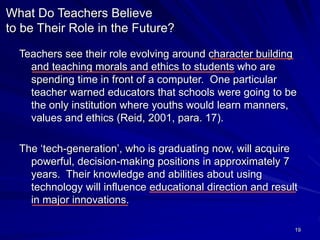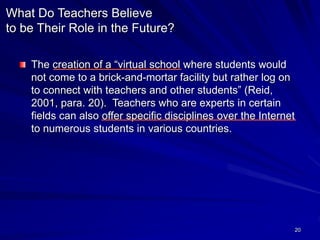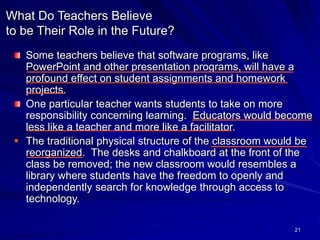Teachers, students, and policymakers debate the effective integration of technology into education. While access to technology has increased, successful implementation and teacher support have proven difficult due to a lack of shared vision, variances in objectives between initiatives and teachers, and insufficient resources and training. For technology integration to succeed, initiatives must be developed collaboratively with clear goals, adequate equipment and support, and opportunities for professional development that allow teachers to experiment and support constructivist approaches to teaching and learning with technology.
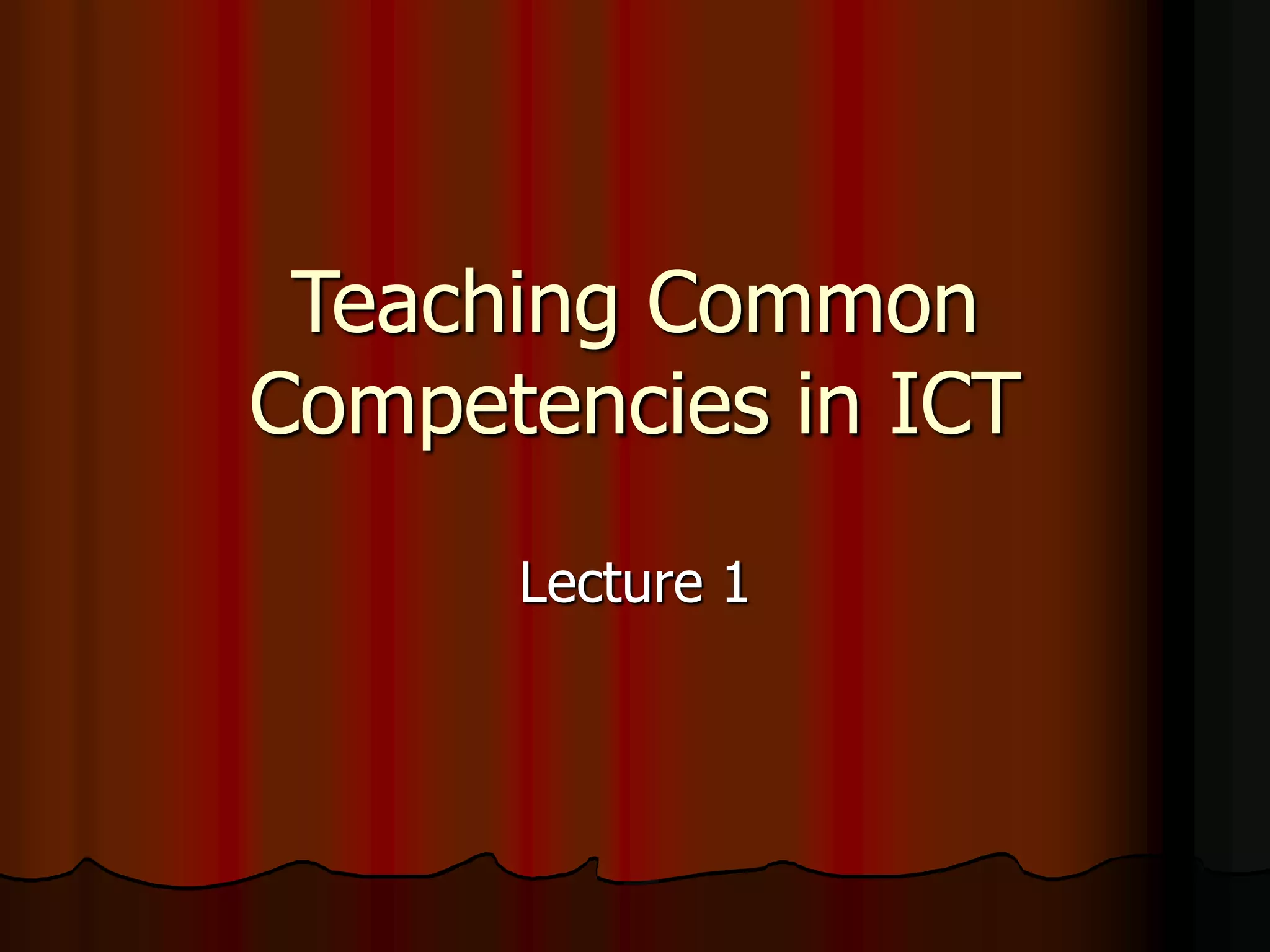
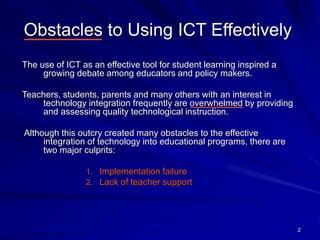
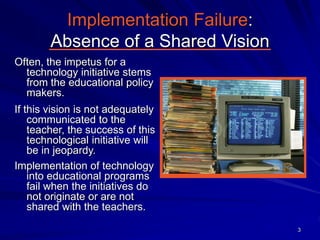
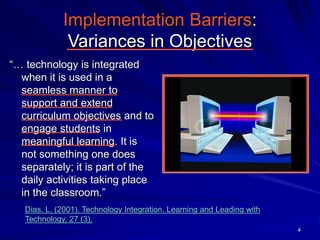
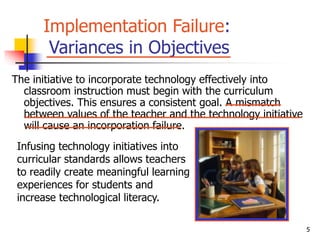
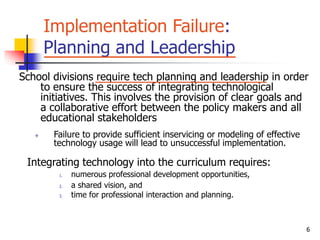
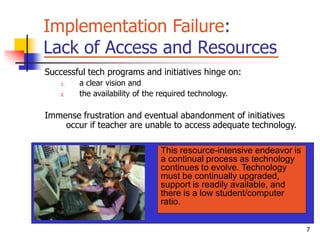
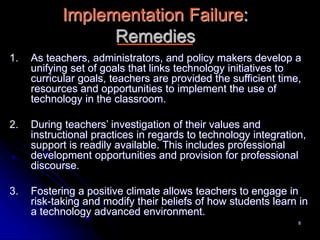
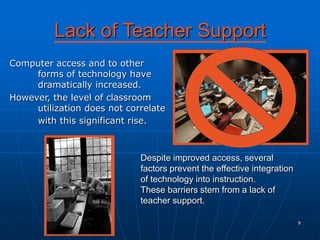
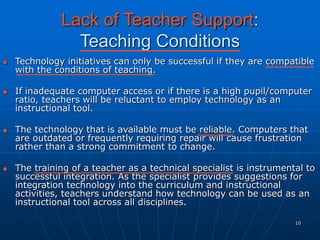
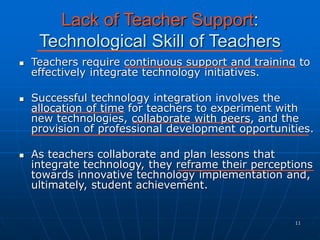
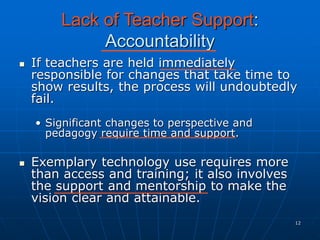

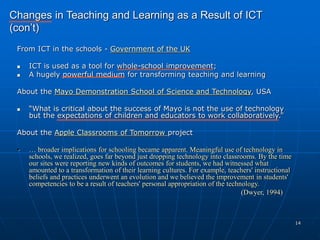
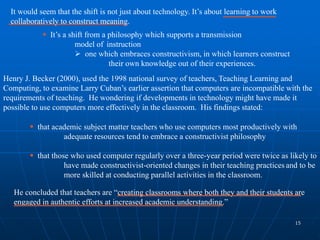
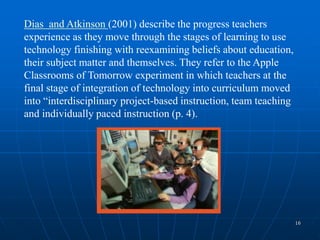
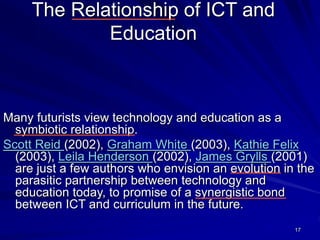
![18
What Do Teachers Believe to be
Their Role in the Future?
“Some teachers made the point that they
thought that “the main role of the teacher
[was] in helping students [to] learn” and
that was not going to change, but how that
objective is accomplished would change”
(Reid, 2001, para. 15).](https://image.slidesharecdn.com/ict-lecture1-220907000533-d2bdb128/85/ICT-Lecture-1-ppt-18-320.jpg)
